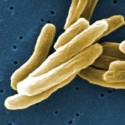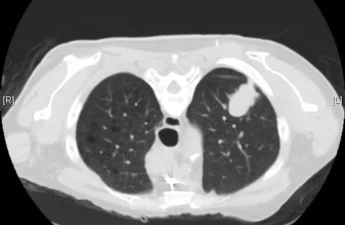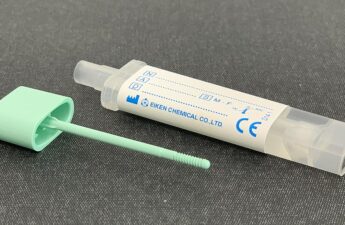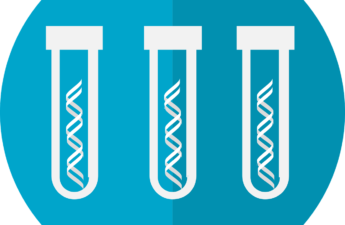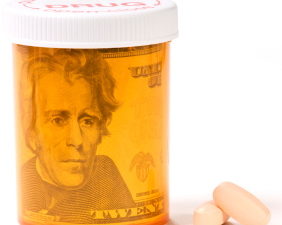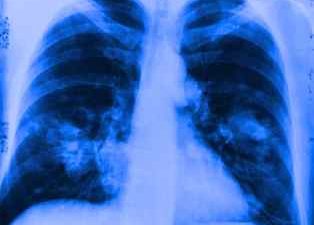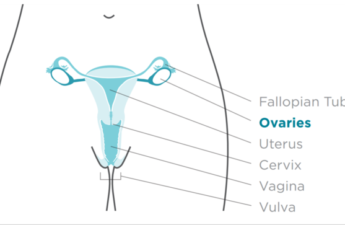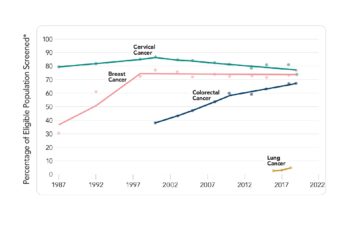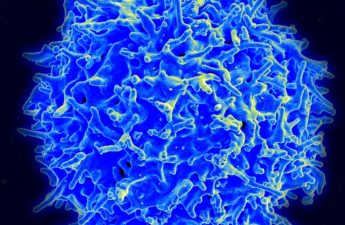Category: Cancer
Seattle group reports TB vaccine advance
Temperature-stable TB vaccine is safe and provokes immune response By Brian Doctrow, Ph.D., National Institutes of Health. An experimental tuberculosis vaccine that can be stored at room temperature was safe and provoked an immune response in a Phase 1 clinical…
Turning 50? Here are 4 things you can do to improve your health and well-being
There are four things in particular that take on greater importance when you turn 50 – that go beyond general health advice that’s beneficial at any age, like staying active, eating well and getting enough sleep.
Lung cancer rates have risen among nonsmokers and young women — why?
The American Lung Association reports that while lung cancer rates have risen by 79% for women over the last 44 years, they decreased by 43% for men. And for the first time in history, there are more young women than men diagnosed with lung cancer.
Alcohol use is widely accepted, but even moderate consumption is associated with many harmful effects
Research increasingly shows that the dangers of alcohol have been downplayed and its benefits exaggerated. In fact, having even one drink a day can have a negative effect on your health.
With Stool Testing, Fewer Americans May Delay Colon Screening
For the U.S. health system broadly, and for uninsured patients in particular, stool tests are significantly less costly than colonoscopies. Stool tests are also less time-consuming and invasive.
A blood test that screens for multiple cancers at once promises to boost early detection
Testing to look for circulating tumor DNA in the blood is not new. These liquid biopsies – a fancy way of saying blood tests – are already widely used for patients with advanced-stage cancer. Doctors use these blood tests to look for mutations in the tumor DNA that help guide treatment.
After breast cancer: 5 changes you can make to stay healthy
So, what can you do to improve your chances of living a longer, healthier life after a breast cancer diagnosis?
Pace as important as 10,000 steps for health, studies find
“The take-home message here is that for protective health benefits people could not only ideally aim for 10,000 steps a day but also aim to walk faster.”
In America, Cancer Patients Endure Debt on Top of Disease
Cancer kills about 600,000 people in the U.S. every year, making it a leading cause of death. Many more survive it, because of breakthroughs in medicines and therapies. But the high costs of modern-day care have left millions with a devastating financial burden. That’s forced patients and their families to make gut-wrenching sacrifices even as they confront a grave illness.
Sunscreen: here’s why it’s an anti-ageing skincare essential
Photoageing is a cumulative process that occurs over time. Doing anything you can to limit exposure will slow this process – But choosing the right kind of sunscreen may also help somewhat.
An expert panel has recommended against taking vitamin E or beta carotene supplements for the prevention of cancer and cardiovascular disease – here’s why
The panel of experts concluded that with regard to the prevention of cardiovascular disease or cancer, the harms of beta carotene supplementation outweigh the benefits and that there is no net benefit of supplementation with vitamin E for those purposes.
Cancer death rates fall among Black Americans but remain higher than other groups
Black men and women had higher rates of cancer death, both overall and for most cancer types, than White, Asian or Pacific Islander, American Indian/Alaska Native, and Hispanic/Latino men and women.
Ovarian cancer is not a silent killer – recognizing its symptoms could help reduce misdiagnosis and late detection
Ovarian cancer has historically been called a “silent killer,” because clinicians thought its symptoms were undetectable. Patients were often diagnosed so late that doctors thought nothing could be done. But there have been many studies over the past 20 years demonstrating that ovarian cancer does have early warning signs.
Screening key to reducing U.S. cancer deaths, panel finds
The United States could substantially reduce cancer deaths by closing gaps in its cancer screening programs, a presidential advisory group has concluded in a new report.
How mRNA and DNA vaccines could soon treat cancers, HIV, autoimmune disorders and genetic diseases
The two most successful coronavirus vaccines developed in the U.S. – the Pfizer and Moderna vaccines – are both mRNA vaccines. The idea of using genetic material to produce an immune response has opened up a world of research and potential medical uses far out of reach of traditional vaccines.
